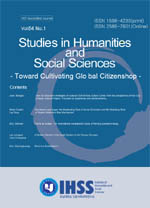- 영문명
- The Consensus-Based Qualitative Study on the Korean Language Learning Experiences of Long-Term Resident Female Marriage Immigrants
- 발행기관
- 호남대학교 인문사회과학연구소
- 저자명
- 한수진(Sujin Han) 문은희(Eunhee Moon)
- 간행물 정보
- 『인문사회과학연구』제68권 제3호, 317~354쪽, 전체 38쪽
- 주제분류
- 사회과학 > 사회과학일반
- 파일형태
- 발행일자
- 2025.08.31

국문 초록
본 연구는 장기 거주 여성결혼이민자의 한국어 학습 경험을 탐색하기 위해 3개의 연구 문제(한국어 학습 과정, 한국어 학습 경험, 한국어 학습에 대한 기대)를 설정하고 생활주기를 5단계(입국 전, 입국 초, 임신과 출산, 자녀양육, 취업)로 나누어 장기 거주 여성결혼이민자 11명을 대상으로 심층 면담을 진행하였다. 본 연구에서는 합의적 질적 연구 방법을 사용하여 분석하였으며, 그 결과 3개의 대영역과 9개의 중심영역, 그리고 29개의 범주를 도출하였다. 연구 결과는 첫째, 장기 거주 여성결혼이민자의 한국어 학습 과정은 생활주기에 따라 학습 방식과 내용에 차이를 보였다. 특히 취업은 입국 초기, 임신·출산, 자녀 양육 시기와 병행되는 경우가 많았으며, 제한된 환경 속에서도 높은 학습 동기와 꾸준한 실천이 이어지고 있음을 확인할 수 있었다. 둘째, 장기 거주 여성결혼이민자의 한국어 학습 경험은 단순한 언어 습득을 넘어 가족 내 역할 수행, 사회적 관계 형성 등과 밀접하게 연결되었으며, 낮은 한국어 실력은 사회 적응의 장애 요인으로 작용하였으나 자기주도 학습 등을 통해 극복하고자 노력했다. 셋째, 장기 거주 여성결혼이민자에게 한국어 학습은 일상생활 적응을 넘어 활발한 경제활동, 자기계발 등으로 확장되어 삶의 질 향상을 위한 평생학습 과정으로 인식되었다. 이러한 결과를 바탕으로 본 연구에서는 생애주기별 맞춤형 한국어교육 운영과 평생학습 관점의 지속 가능한 교육체계 마련을 제언하였다.
영문 초록
This study set three research questions (Korean language learning process, Korean language learning experience, and expectations for Korean language learning) to explore the Korean language learning experience of long-term female marriage immigrants, divided the life cycle into five stages (before entry, early entry, pregnancy and childbirth, childrearing, and employment), and conducted in-depth interviews with 11 long-term female marriage immigrants. This study analyzed the results using a consensual qualitative research method, and derived three major areas, nine central areas, and 29 categories. The results of the study are as follows: First, the Korean language learning process of long-term resident female marriage immigrants varied in terms of learning methods and content depending on their life stages. In particular, employment often coincided with the early stages of settlement, pregnancy and childbirth, and child-rearing. Despite such constrained circumstances, these women demonstrated strong motivation and continued engagement in language learning. Second, the Korean language learning experience of long-term female marriage immigrants went beyond simple language acquisition and was closely connected to performing family roles and forming social relationships. Low Korean language skills acted as a barrier to social adaptation, but they tried to overcome it through self-directed learning, etc. Third, for long-term female marriage immigrants, learning Korean was recognized as a lifelong learning process that goes beyond daily life adaptation to include active economic activities and self-development, and improves the quality of life. Based on these results, this study suggested customized Korean language education operation for each life cycle and establishment of a sustainable education system from a lifelong learning perspective.
목차
Ⅰ. 서론
Ⅱ. 장기 거주 여성결혼이민자의 한국어 학습
Ⅲ. 연구 방법
Ⅳ. 연구 결과
Ⅴ. 결론 및 제언
Reference
키워드
해당간행물 수록 논문
참고문헌
- Ministry of Gender Equality and Family
- Bilingual Research
- Journal of Counseling Psychology
- The Academy for Korean Language Education
- Cultural Exchange and Multicultural Education
- Journal of Ewha Korean Language and Literature
- Journal of the International Network for Korean Language and Culture
- Immigration and Foreign Policy Headquarters
- Immigration and Foreign Policy Headquarters
- Teaching Korean as a Foreign Language
- Contemporary Society and Multiculture
- Bilingual Research
- Cultural Exchange and Multicultural Education
- Journal of international culture1-1
- Journal of the Korean Data Analysis Society
최근 이용한 논문
교보eBook 첫 방문을 환영 합니다!

신규가입 혜택 지급이 완료 되었습니다.
바로 사용 가능한 교보e캐시 1,000원 (유효기간 7일)
지금 바로 교보eBook의 다양한 콘텐츠를 이용해 보세요!



